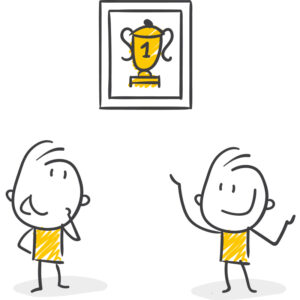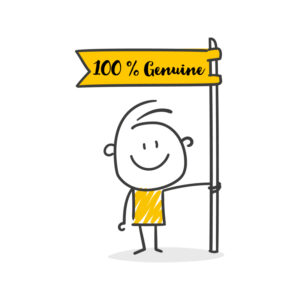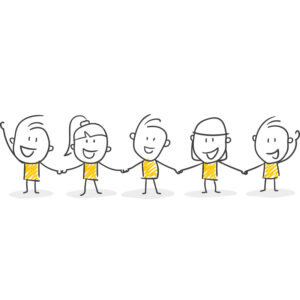Recognition
Using Peer Recognition to build a culture of gratitude

The Culture of Gratitude
The culture of appreciation and gratitude in most major organizations has often felt forced over the past few decades. The entire exercise of complimenting or appreciating good work has always been hierarchy based, stemming from the top to those placed lower on the organization’s tree. This process has always encouraged tokenism, and hardly have there been genuine moments of gratitude between the employees of an organization.
Alternatively, we at PeerFives believe that a simplistic or laid back approach to employee or peer recognition in an organization can have disastrous effects on the output and overall work environment. We encourage every organization to have a well-planned peer recognition program that infuses positivity and helps build a culture of gratitude.
The Importance of a Peer Recognition Program

Most employees believe that the annual cycle of feedback and appraisals tends to be ineffective and inaccurate. Human nature is such that we crave attention and praise on a regular basis; limiting this to an annual or bi-annual event shall inadvertently bring down the morale of the employees that work hard on a daily basis to deliver the best possible results for their employers.
The harshest critics of peer recognition often argue that the practice is one that is impractical and only fit for marketing and PR. But a closer look at most peer recognition programs reveals that the incorrect application and the inefficiency of the program lead to such inaccurate beliefs.
In order to build a culture of gratitude using peer recognition, every organization needs to ensure that they get a few things right, and each of these is discussed in detail below:
1. Keeping The Recognition Genuine:

An earnest peer recognition program shall require the recognition to be genuine. This itself is the biggest challenge that organizations shall face while building a culture of gratitude. PeerFives encourages its users to recognize good work done by peers. There is no specific day assigned in the week or the month to give PeerFives, unlike some of the other peer recognition tools in the market that promote recognition on specific days to increase engagement between employees.
While this may look good on paper, it does end up being inorganic and unnatural. Additionally, by encouraging users to recognize peers on fixed instances, they end up reducing the value of genuine accomplishments by peers. This inadvertently once again steers the whole exercise towards tokenism.
Hence, organizations must work to educate employees about rewarding and recognizing peers only when necessary. The recognition should be for an important reason, and they should exemplify the core values of the organization. If good work can encourage other employees to deliver their best at work, then it must be considered reward or recognition worthy.
2. Keeping Rewards and Recognition Timely:

PeerFives is all about instantly recognizing great work done by peers. Every organization must strive to keep recognition and rewards timely if there is a genuine urge to develop a culture of gratitude. The timely recognition of good work shall motivate every employee to constantly perform their best and bask in the spotlight shed by their peers.
If there is any delay in recognition, employees often get demotivated and not only does their own performance drop off, and they do not tend to acknowledge good work done by their peers as they feel cheated of the recognition they were due.
3. The Chain of Recognition:

To build a culture of gratitude in an organization, it is vital that each and every employee of the organization participates in a well thought out peer recognition program. While in many instances, there is a risk of employees getting too eager and overdoing recognition, thereby diluting its effectiveness. Conversely, there is the risk of some employees in an organization not taking peer recognition seriously. These employees then become the weakest link in the chain of recognition and may end up breaking the whole process down as well.
Hence, all employees must be educated and encouraged to actively participate in peer recognition. They must give credit where it is due, especially to their peers, and uplift the organization on the whole. The participation of every employee in building a culture of gratitude in an organization is of utmost importance.
4. Specific Recognition:

Recognizing good work done by a peer surely is a sign of showing gratitude. However, the magnitude differs. Some employees put in a lot of effort to complete a task, recognizing work done by them with a simple thanks may end up putting their accomplishment on par with the relatively straightforward work done by another employee.
Thus, PeerFives has a system in place where the work done by an employee is recognized specifically via a two-step process. The first step prompts those who are rewarding to choose a particular number of PeerFives they wish to reward their peers with. Each of these PeerFives has a fixed monetary value predetermined by the admins and managers of an organization. This helps indicate to the organization how worthy the work done by the employee is.
In the second step, the employee who is rewarding a peer has to type in a personalized message to thank the peer for the work done by them. Often this message is encouraged to state the reason for awarding PeerFives, the skills exhibited by them and the core values of the organization exemplified by the work are chosen as hashtags.
Collectively, all of the above steps are integral to building a culture of gratitude in an organization. These steps highlight the need for an effective peer recognition program and how the correct implementation of the program leads to a positive workplace and better results.
PeerFives is your one-stop solution for everything peer-recognition related; contact us now to schedule a demo and start unlocking the full potential of your team!

